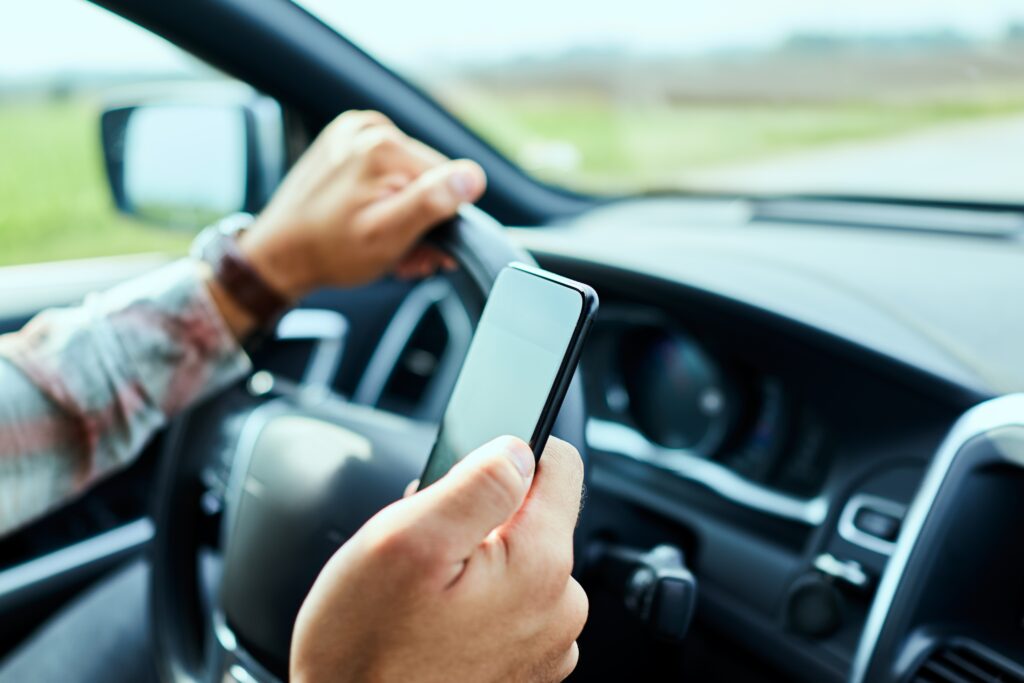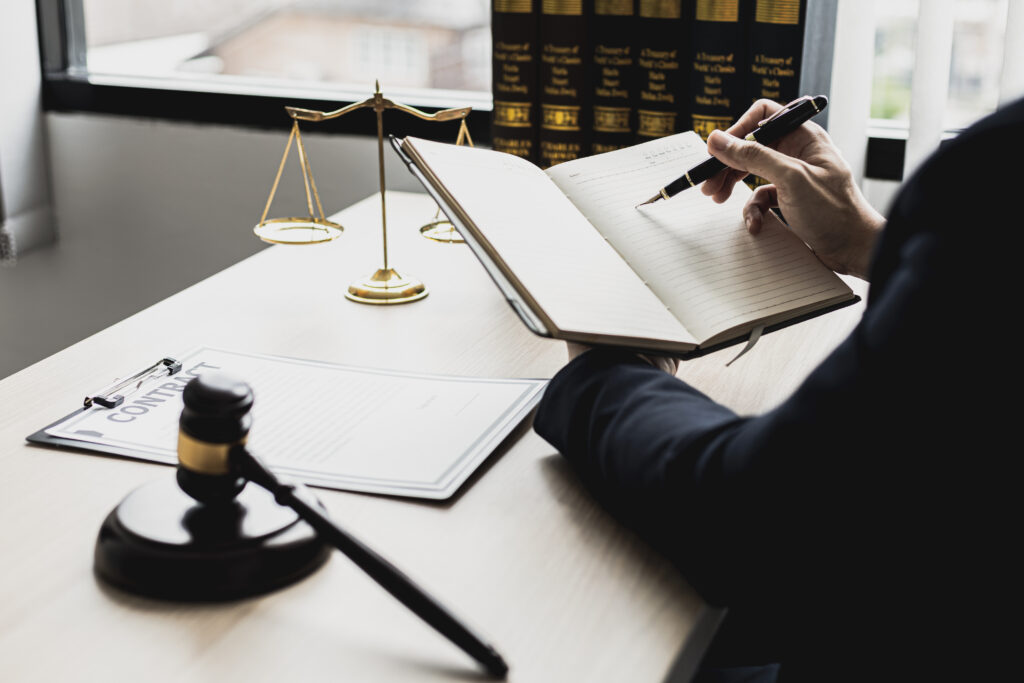Distracted driving has become one of the most pressing dangers on the roads today. As technology evolves, the temptation to engage with devices and other distractions while driving has increased, leading to devastating consequences. For victims of accidents caused by distracted drivers, the aftermath can be overwhelming—physically, emotionally, and financially.
Let’s take a closer look at the alarming statistics surrounding distracted driving, its impact on victims, and how Wisconsin car accident lawyers can help you if you or someone you love suffered injuries in a distracted driving accident.
The Shocking Reality of Distracted Driving
Distracted driving is any activity that diverts attention away from the primary task of driving. This includes not only texting or talking on a phone but also eating, adjusting the radio, or even daydreaming. The consequences of such distractions are often severe, leading to accidents that can result in serious injuries or even death.
The statistics surrounding distracted driving are staggering, underscoring the widespread nature of this issue:
- According to the most recent National Highway Traffic Safety Administration (NHTSA) data, distracted driving claimed 3,308 lives last year alone.
- The Centers for Disease Control and Prevention (CDC) reports that approximately nine people die each day in crashes involving distracted drivers.
- Texting while driving increases the risk of a crash by 23 times, according to a Virginia Tech Transportation Institute study.
- The NHTSA estimates that sending or reading a text message takes your eyes off the road for an average of 5 seconds. At 55 mph, that's equivalent to driving the length of a football field with your eyes closed.
- A study by the Insurance Institute for Highway Safety (IIHS) found that drivers were 57% more likely to be manipulating their phones while driving than five years earlier.
- The National Safety Council reports that the percentage of drivers manipulating hand-held electronic devices has increased 82% over 10 years, from 1.7% to 3.1%. Among other activities, this observation includes text messaging.
These statistics paint a grim picture of the dangers posed by distracted driving. But what exactly constitutes distracted driving?
Common Types of Distracted Driving

Distracted driving can be categorized into three main types:
- Visual distractions: Taking your eyes off the road
- Manual distractions: Taking your hands off the wheel
- Cognitive distractions: Taking your mind off driving
Some common examples of distracted driving include:
- Texting or using a smartphone
- Eating or drinking
- Talking to passengers
- Adjusting the radio or navigation system
- Applying makeup or grooming
- Reading, including maps
- Watching videos
- Reaching for objects in the car
While texting is often cited as the most dangerous form of distracted driving because it combines all three types of distractions, any activity that takes your attention away from the road can have devastating consequences.
The Impact on Victims
Being involved in an accident caused by a distracted driver can have far-reaching consequences for victims. The impact extends beyond physical injuries and can affect various aspects of a person's life:
Physical Injuries
Accidents caused by distracted drivers can result in a wide range of injuries, from minor cuts and bruises to severe, life-altering conditions.
Common injuries include:
- Whiplash and other neck injuries
- Traumatic brain injuries (TBI)
- Spinal cord injuries
- Broken bones and fractures
- Internal organ damage
- Burns
- Lacerations and scarring
Victims may require surgeries, physical therapy, and assistive devices for the rest of their lives. These injuries not only affect the victim’s quality of life but also impose significant financial burdens.
Emotional and Psychological Impact
The trauma of being in a serious accident can have lasting psychological effects.
Victims may experience:
- Post-traumatic stress disorder (PTSD)
- Anxiety and depression
- Fear of driving or being in a vehicle
- Sleep disturbances
- Mood swings and irritability
- Difficulty concentrating
The emotional scars from a distracted driving accident can be deep and lasting. Victims may struggle with these effects, which can impact their relationships, ability to work, and overall well-being. Addressing these emotional injuries is just as important as treating physical injuries.
Financial Burden
The financial impact of a distracted driving accident can be overwhelming. Victims often face:
- High medical bills
- Lost wages due to time off work
- Reduced earning capacity if injuries result in long-term disability
- Vehicle repair or replacement costs
- Ongoing expenses for medication, therapy, or assistive devices
These costs can quickly add up, leaving victims in a precarious financial situation. In some cases, victims may be unable to return to work, leading to long-term financial instability.
Impact on Relationships
Serious injuries can strain personal relationships. Victims may experience:
- Changes in family dynamics as roles and responsibilities shift
- Stress on marriages or partnerships
- Social isolation due to limited mobility or emotional challenges
- Difficulty maintaining friendships or professional relationships
The ripple effect of a distracted driving accident can affect every aspect of a victim's life, often in ways that do not immediately manifest.
What to Do After a Distracted Driving Accident
If you’ve been involved in an accident caused by a distracted driver, it’s essential to take certain steps to protect your rights and strengthen your case:
- Seek Medical Attention Immediately: Even if your injuries seem minor, getting checked out by a healthcare professional is crucial. Some injuries, like whiplash or internal bleeding, may not be immediately apparent.
- Document the Scene: If possible, take photos of the accident scene, your injuries, and any damage to your vehicle. Collect contact information from any witnesses and note any surveillance cameras that may have captured the incident.
- Report the Accident: File a police report as soon as possible. This report will be a key piece of evidence in your case.
- Avoid Speaking to the Insurance Company Alone: Insurance adjusters may try to get you to make statements that can be used against you. It’s best to refer them to your lawyer.
- Consult a Lawyer: The sooner you speak with a lawyer, the better. They can begin working on your case immediately, preserving evidence and advising you on the best course of action.
Legal Options for Victims
If a distracted driver has injured you, you may be entitled to compensation for your losses. However, navigating the legal system can be complex and overwhelming, especially when you're trying to recover from injuries. Insurance companies, medical bills, and lost wages can create a maze of challenges that are difficult to manage alone. This is where the support of a personal injury lawyer becomes invaluable.
Navigating the Legal Process
A lawyer's most critical role is guiding you through the legal process. From filing a claim to negotiating with insurance companies, a lawyer ensures that your rights are protected every step of the way. They understand the tactics insurance companies use to minimize payouts and are equipped to counter these strategies effectively.
Building a Strong Case
To secure the compensation you deserve, building a strong case is essential. This involves gathering evidence, such as police reports, witness statements, and available video footage, to establish the distracted driver’s liability. A skilled lawyer will also work with medical experts to document the extent of your injuries and calculate the full cost of your medical care, lost wages, and other damages.
Maximizing Compensation
Compensation in a distracted driving case can cover a wide range of damages, including:
- Medical expenses: Current and future costs related to your injuries.
- Lost wages or income: Compensation for the income lost due to your inability to work.
- Pain and suffering: Damages for the physical pain and emotional distress caused by the accident.
- Property damage: Costs to repair or replace your vehicle.
Working with a lawyer increases your chances of receiving the maximum compensation available for your case.
Handling Insurance Companies
Dealing with insurance companies can be one of the most stressful aspects of recovering from an accident. Insurance adjusters often try to downplay the severity of your injuries or suggest that you were partially at fault to reduce their liability. A lawyer will handle all communications with the insurance company, ensuring your rights are protected and you receive a fair settlement.
How a Lawyer Can Prove Distracted Driving

Proving that a driver was distracted during an accident can be challenging, but it’s crucial to securing compensation. Lawyers have various methods to demonstrate that distraction was a factor in the crash.
Cell Phone Records
One of the most common ways to prove distracted driving is to obtain the at-fault driver’s cell phone records. These records can show whether the driver was texting, calling, or using apps at the time of the accident.
Eyewitness Testimony
Witnesses to the accident may have seen the driver using their phone or engaging in other distracting behaviors. Their testimony can be instrumental in establishing that the driver was not paying attention to the road.
Traffic Camera Footage
In some cases, traffic cameras or nearby security cameras may have captured footage of the accident. This footage can provide clear evidence of distracted driving.
Expert Analysis
Accident reconstruction experts can analyze the scene of the crash and the damage to the vehicles to determine whether the driver’s actions were consistent with distracted driving. Their findings can be used to support your case in court.
What to Look for in a Personal Injury Attorney
When seeking legal representation after a distracted driving accident, consider the following factors:
- Experience with distracted driving cases
- Track record of successful settlements and verdicts
- Knowledge of local laws and court systems
- Clear communication and responsiveness
- Willingness to take your case to trial if necessary
- Compassionate approach to client relationships
Remember, most personal injury attorneys offer free initial consultations, allowing you to discuss your case and determine if they're the right fit for you without any financial obligation.
Seeking Justice and Moving Forward
Recovering from a distracted driving accident is a complex and often painful process. However, by taking legal action, victims can hold the responsible party accountable and secure the financial resources they need to rebuild their lives.
The Importance of Accountability
Holding a distracted driver accountable for their actions is about more than just securing compensation; it’s about justice. Holding drivers responsible for their negligence sends a powerful message about the dangers of distracted driving and helps prevent future accidents.
Empowering Victims
Victims of distracted driving accidents can take control of their situation by working with a lawyer. Instead of feeling helpless in the face of mounting bills and legal challenges, they can have a strong advocate fighting on their behalf.
Looking Toward the Future
While a distracted driving accident can be overwhelming, it’s important to remember that recovery is possible. With the right legal support, victims can focus on healing, rebuilding their lives, and moving forward.
The Road to Recovery
Recovering from an accident caused by a distracted driver can be a long and challenging journey.
Healing takes time, and it's okay to ask for help. In addition to seeking legal support, consider:
- Follow your doctor's recommendations for treatment and rehabilitation
- Seek support from family, friends, or support groups
- Consider professional counseling to help cope with emotional trauma
- Be patient with yourself as you navigate the recovery process
You Don't Have to Face This Alone
Distracted driving accidents can have devastating consequences, leaving victims to deal with physical injuries, emotional trauma, and financial burdens. If a distracted driver has injured you, you must understand that you have rights and options.
At Nicolet Law Accident & Injury Lawyers, we understand the challenges you're facing. Our experienced Wisconsin personal injury lawyers team is dedicated to helping victims of distracted driving accidents navigate the complex legal process and fight for the compensation they deserve. We're committed to providing compassionate, personalized legal representation to each of our clients.
Don't let the actions of a distracted driver derail your life. Contact Nicolet Law Accident & Injury Lawyers today at (715) 377-2141 or through our online form for a free consultation. Let us handle the legal complexities while you focus on what matters most—your recovery. Remember, when you're injured, Get Nicolet. We're here to help.
